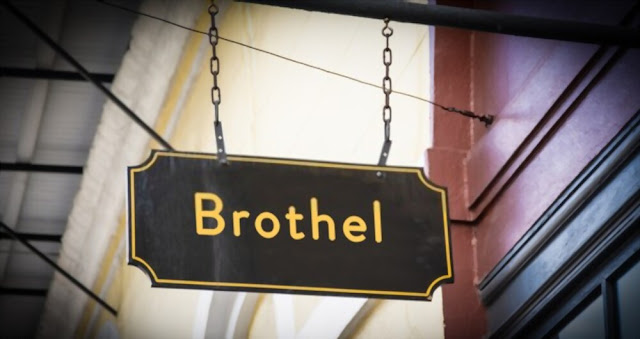Introduction
Throughout history, the regulation of the sex industry, particularly the establishments popularly known as brothels, has been a subject of compelling interest and pressing concern. Misunderstandings and misconceptions often abound, primarily due to the taboo nature of sex work and the complicated network of legalities surrounding it. This blog post aims to demystify the international legal framework and the diverse legislations pertaining to brothels, thereby shedding light on a frequently overlooked and misunderstood sector of society.
In the following sections, we will take an in-depth look at how brothels are recognised and legislated in various geographical locations. We will convey a range of angles, from thorough prohibition to regulated allowance, and the way different legislative approaches influence not only the status of brothels but also the wellbeing and rights of sex workers. Our investigation takes us from the deserts of Nevada in the US to the city streets of Austria and the islands of New Zealand.
Recognising Brothels And Their Global Occurrence
The word 'brothel' dates back to the 16th century. Essentially, it stands for a place where individuals engage in sexual activity with another person in exchange for payment. Brothels have been a part of societies across the globe for centuries, from ancient Rome and Greece to the flourishing red-light districts of contemporary cities.
Although many countries have sought to suppress them in different eras, brothels have had their periods of prominence and dramatic impact on cultural, societal, and economic fronts. Today, they are distributed unevenly around the world, their prevalence dependent on a nation's stance towards sex work- ranging from strict criminalisation to unrestricted legality.
Overview Of Legal Stances
Globally, the legal framework concerning brothel ownership and operation is far from homogenous. Countries have divergent stances, shaped by their unique cultural, religious, societal, and political contexts. In some nations, brothels are entirely illegal, falling under laws that broadly criminalise sex work, as seen in most of the US, Russia, and China.
At the other end of the spectrum, there are places like the Netherlands and Nevada (US), where brothels are perfectly legal and adequately regulated. In between, we find nations that have decriminalised brothels, such as New Zealand, or countries like Austria and Australia, where a mixed legal status is prevalent.
A Dive Into Legislation: Australian Perspective
Australia's approach towards brothels displays a geo-political split, with each state and territory having its own set of regulations. For instance, in New South Wales, brothels are completely legal and regulated under the public planning system. However, in South Australia and Western Australia, brothels are essentially illegal, falling under laws that criminalise the management of a sex work business.
This divergent regional framework can be attributed to factors such as differing political powers, societal attitudes, historical precedents, and demographic patterns. Despite the contradictions, there is a general agreement across Australian jurisdictions towards ensuring sex worker safety and health, though the extent and effectiveness of such safeguards can vary significantly.
Under The Microscope: Legal Framework Of Austria’s Brothels
In the heart of Europe, Austria presents a stark contrast to the Australian case. Here, sex work is significantly recognised as a legal occupation under federal law, with brothels operating as licensed businesses. The system is designed to balance societal acceptance and control, aiming to minimise harm and maximise benefits.
For instance, brothel owners must adhere to strict legal codes that outline working conditions, including regular health checks for sex workers, mandatory use of condoms, and adhering to business licensing requirements. Such regulations aim to safeguard not only the rights and health of sex workers but also public health and societal norms.
Walking The Grey Line: Brothels In Nevada, Us
The US state of Nevada is an exception in a country where brothels are otherwise illegal. Nevada's approach is unique as it opts for controlled legality rather than decriminalisation or full-scale criminalisation. In specific counties, brothels can operate legally if they meet strict regulatory criteria.
However, it's not a blanket approval across the state – counties with a population above a certain threshold (currently 700,000) have brothels explicitly outlawed. This carefully calibrated system seeks a middle ground, acknowledging the pragmatism of legalised brothels while striving to curb potential societal implications.
Decriminalisation: The New Zealand Model
Taking yet another approach, New Zealand opted for decriminalisation through the Prostitution Reform Act of 2003. This groundbreaking legislation removed most criminal laws against sex work, thereby enabling brothels to operate as legitimate businesses. However, certain controls persist, such as a ban on advertising and street work, as well as strict visa rules for foreign sex workers.
New Zealand's decriminalisation model has been hailed by many human rights organisations for its focus on sex workers' safety, health, and rights. It has reportedly led to significant improvements in sex workers' working conditions, although criticism and debate remain.
The Role Of Legislation In Protecting Sex Workers
The disparities in global legal stances towards brothels have significant implications for sex workers' rights and wellbeing. Studies consistently show that criminalising sex work often leads to increased vulnerability, violence, and poor health outcomes for sex workers.
On the contrary, regulation or decriminalisation tends to have a positive impact. For instance, New Zealand's model and Austria's regulatory approach provide legal safeguards, improve working conditions, and enhance access to healthcare services and other support mechanisms for sex workers. Though not entirely exempt from critique, these models arguably provide more advantages than their criminalising counterparts.
Conclusion
Examining the international legal framework and legislation surrounding brothels, it becomes evident that there is no 'one-size-fits-all' approach. Every country's stance is rooted in its unique socio-cultural context and in response to various factors at a given time. However, it is essential to keep an open mind about the age-old profession. Crucially, decisions must be guided by a human rights perspective, focusing on the safety, health, and dignity of all individuals involved.

.jpg)






.jpg)
No comments:
Post a Comment